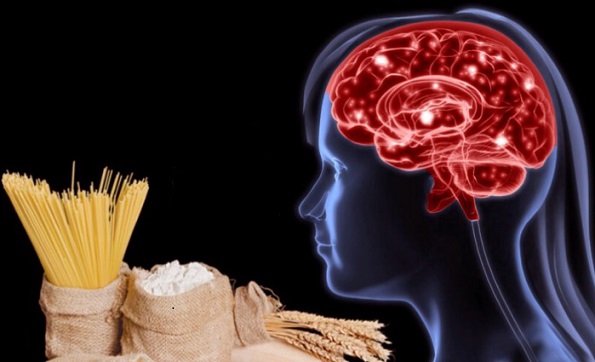Nikhil Prasad Fact checked by:Thailand Medical News Team Oct 24, 2025 3 months, 3 weeks, 8 minutes ago
Medical News: Study Challenges Old Beliefs About Gluten Sensitivity
A groundbreaking study led by researchers from the University of Melbourne has revealed that gluten sensitivity, which affects millions worldwide, may not actually be caused by gluten itself. Instead, the condition appears to result from complex interactions between the gut and the brain. The findings could revolutionize how doctors diagnose and treat this misunderstood condition.
 Gluten Sensitivity May Be More About the Brain Than Gluten
Gluten Sensitivity May Be More About the Brain Than Gluten
According to this
Medical News report, the review published in The Lancet analyzed existing scientific evidence on non-celiac gluten sensitivity (NCGS), a condition where people experience bloating, fatigue, or gut discomfort after eating gluten but do not have celiac disease. The researchers discovered that the real triggers are often other components in wheat or even the way the brain processes gut sensations, rather than gluten itself.
What the Researchers Found
Associate Professor Jessica Biesiekierski from the University of Melbourne, the study’s lead researcher, explained that most individuals with NCGS aren’t truly reacting to gluten. Instead, their symptoms may be caused by fermentable carbohydrates—also known as FODMAPs—or other wheat ingredients. Psychological factors, including expectations and anxiety about food, can also play a powerful role in triggering symptoms.
The research team included scientists from the University of Melbourne and the Royal Melbourne Hospital in Australia, as well as experts from universities in The Netherlands, Italy, and the United Kingdom. Their combined data found that only a handful of tightly controlled studies showed any real gluten-specific reactions. In most experiments, participants reacted similarly whether they were given gluten, other wheat compounds, or a placebo.
A Gut–Brain Connection Behind the Symptoms
The study suggests that non-celiac gluten sensitivity should be viewed as part of a wider range of gut–brain interaction disorders—conditions like irritable bowel syndrome (IBS)—where both psychological and digestive factors influence symptoms. This understanding could shift how doctors treat patients, focusing not only on diet but also on emotional well-being and gut–brain communication.
Associate Professor Jason Tye-Din, Director of the Snow Centre for Immune Health and a gastroenterologist at the Royal Melbourne Hospital, emphasized that the findings will help doctors distinguish between NCGS and other gut disorders. This improved clarity could lead to more accurate diagnoses and treatment plans that combine nutrition advice with psychological support.
Implications for Diet and Public Health
Millions of people around the world now follow gluten-free diets, often without a medical need. The researchers caution that unnecessarily avoiding gluten can lead to nutritional imbalances and social challenges. They urge health au
thorities to update public health messaging to reflect that gluten is not inherently harmful for most people.
The authors call for more research into diagnostic tools and treatments that balance dietary and psychological care. As Associate Professor Biesiekierski noted, future healthcare strategies should move beyond restrictive diets and focus on holistic management of gut–brain disorders.
Conclusion
This study reshapes our understanding of gluten sensitivity, showing that the condition is less about gluten and more about the intricate communication between the digestive system and the brain. By recognizing this link, healthcare providers can deliver more personalized and effective treatments, reducing unnecessary gluten avoidance and improving overall gut health.
The study findings were published in the peer reviewed journal: The Lancet.
https://www.thelancet.com/journals/lancet/article/PIIS0140-6736(25)01533-8/abstract
For the latest on Gluten Sensitivity, keep on logging to Thailand
Medical News.
Read Also:
https://www.thailandmedical.news/articles/diets-and-nutrition
https://www.thailandmedical.news/articles/health-news
